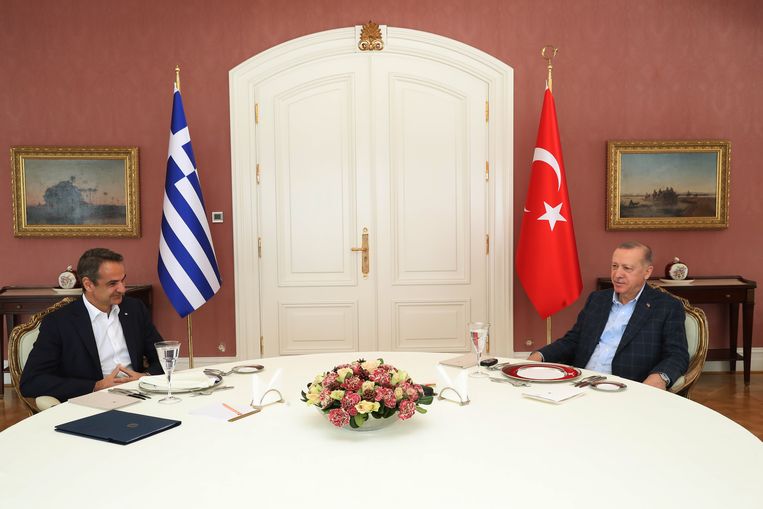“The price will be high,” Erdogan said. “We say one thing to Greece: don’t forget Izmir.” Referring to a historic battle, exactly a hundred years ago last week, in which the Greeks lost against the Turkish army. “We may strike one night,” he added.
The president has used the latter phrase several times in recent years to refer to the Turkish military’s actions against Kurdish militants in Syria and Iraq. These processes have already occurred after some time.
Tensions between the two NATO members have risen several times over the past 50 years. In 1996, two uninhabited Greek islands in the Aegean Sea entered into a military conflict. In the summer of 2020, the drums of war are moving again, this time due to the gas rights to the bottom of the Mediterranean.
Last year the atmosphere seemed clear and the neighboring countries started talking again. In March, Erdogan and Greek Prime Minister Kyriakos Mitsotakis had lunch together, but two months later Erdogan said again that Mitsotakis “does not exist for me”. This is after the Greek prime minister argued in Washington against Turkey’s participation in NATO’s renewal of the F-16 fighter jet.
In late August, the Turks reacted with fury when Greece, alleged by Ankara, impeded the Turkish air force during a NATO exercise. It could have happened with the Russian S-300 anti-aircraft system. The United States and Europe are angry that Ankara bought the Russian S-400, but will remain silent, as Ankara angrily noted, if the Greeks use the S-300 against a NATO partner.
Very Old
There is a great deal of ancient ulcers between Turkey and Greece. There have long been territorial disputes over the many islands in the Aegean Sea. In recent years, this issue has been raised again by gas-related rights on the bottom of the Mediterranean. This also plays a role in the conflict over Cyprus that has existed since 1974.
Erdogan has now added fuel to the fire by claiming for the first time that Greece “occupies” a number of islands. Athens could have obtained this through negotiations at the time, provided they remained demilitarized. According to the Turkish government, Athena violated this condition.
The old sore also featured in a striking Twitter dispute last week. NATO headquarters in Izmir took to Twitter to congratulate Turkey on Victory Day, the annual celebration of the battle in which the Turkish army was victorious at Dumlupinar. Shortly thereafter, the Turkish Republic was established. This year’s celebration had a special touch: it was a hundred years ago.
The congratulations were not well received in Athens. After all, it was the Greek forces that were defeated in 1922! The Greek press was on fire, and soon the Greek Foreign Ministry complained to NATO in Brussels. Then the tweet disappeared.
Columnist Hilal Kaplan wrote “This Shows” In the pro-government newspaper Daily morning“Greece’s childish attitude led NATO to succumb to the delusions of Athens.”







